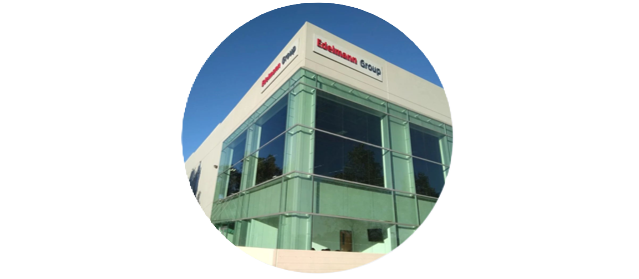

A visit to the HEIDELBERG Print Media Center at the company’s Wiesloch-Walldorf site is a must for anyone who wants to know just what offset, flexographic, and digital printing can achieve. That is because this demo center exhibits complete production lines. A team from the Edelmann Group paid a visit in October 2023. This family business, founded in 1913 and headquartered in the German town of Heidenheim an der Brenz, is a leading packaging manufacturer. Edelmann specializes in developing, printing, and manufacturing high-quality, innovative, and sustainable packaging, including folding cartons, pack inserts, and rigid boxes. The purpose of its visit to Wiesloch-Walldorf was to chat with the HEIDELBERG experts, set out its expectations, and print some test orders. “We adopt a conservative approach, taking a very detailed look at everything – and not just once,” says Edelmann CEO Dr. Frank Hornung.
Several meetings and a good year later, two new Peak Performance Speedmaster XL 106 sheetfed offset presses are now installed at Edelmann. One of these is located at the company’s site in Mexico City, which primarily produces highly finished premium packaging for the beauty sector. The second press is installed at its German site in Weilheim an der Teck and is used to print high-quality packaging for the pharmaceutical industry. “Whereas we’re simply investing in growth in Mexico, the investment in Weilheim is driven by efficiency considerations,” explains Hornung. Edelmann now has nine rather than eight presses in Central and North America, while the new machine in Germany is a replacement for two older presses. “You need to modernize to stay competitive,” emphasizes Hornung.
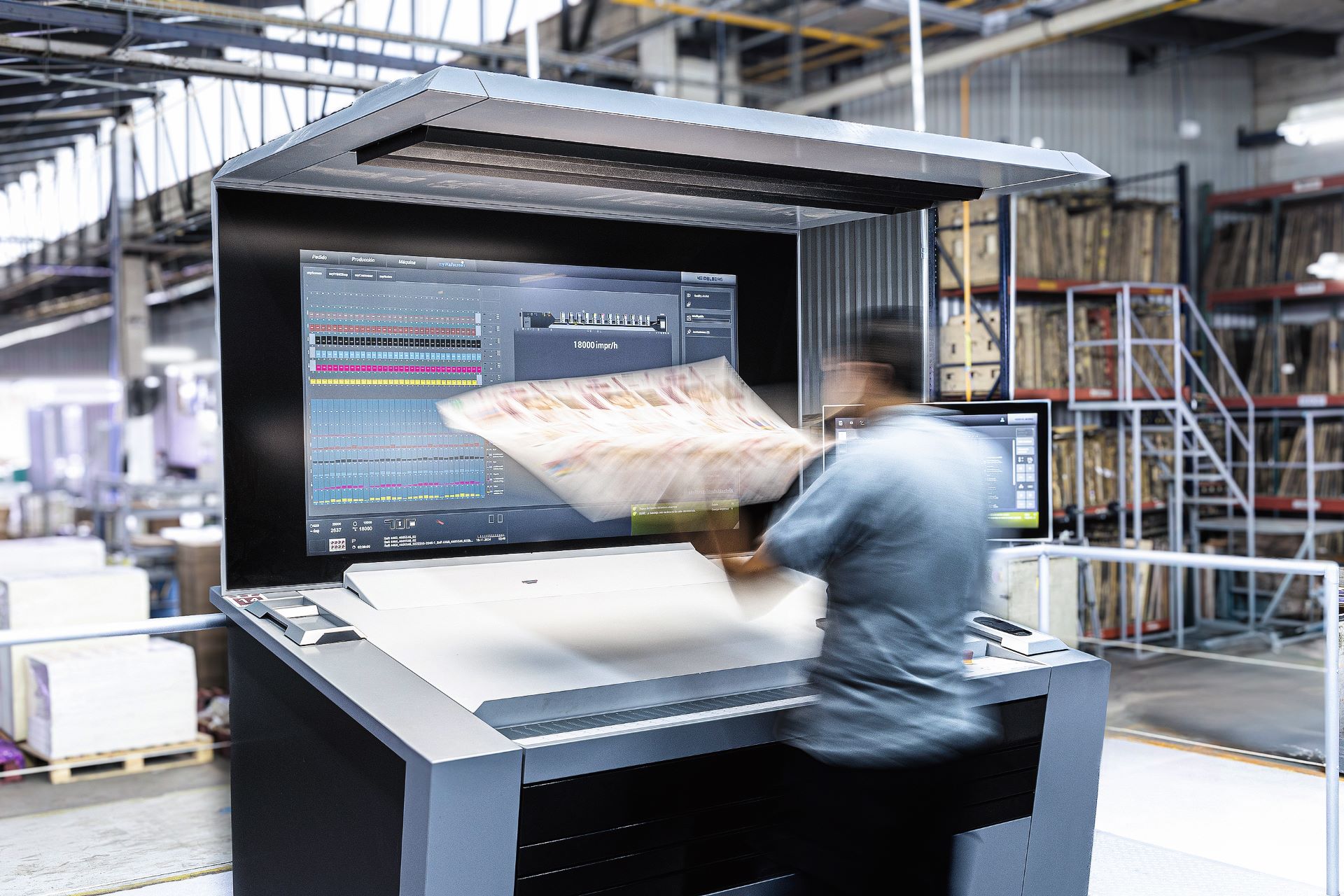
Despite their differences, the two markets present similar challenges. Factors such as rising energy and labor costs that the company is unable to pass on to customers or offset by extending delivery times are causing difficulties. The solution is to improve efficiency while maintaining the same level of quality. Both new presses are therefore equipped with systems such as Prinect Inpress Control . This integrated spectral measurement system finds the print control strip, paper white, and register marks fully automatically and starts the color control process without any operator intervention. The smaller batch sizes that are typical of niche suppliers represent a further challenge, as they involve long makeready times. “Makeready accounts for up to 50 percent of our production time,” reveals Hornung. Reducing this figure was, he says, another objective, and HEIDELBERG won the company over with its approach.
If you want good relationships with customers, you need to supply products that work smoothly. That goes without saying. People who have a good connection with each other are equally important, though. “Every business is a people business,” insists Hornung. Although he never signs on the dotted line based on good service alone, he says it does help. In this particular case, for example, there is a single contact for all the Edelmann Group’s sites worldwide, which is one of the reasons the group of companies enjoys working with HEIDELBERG.

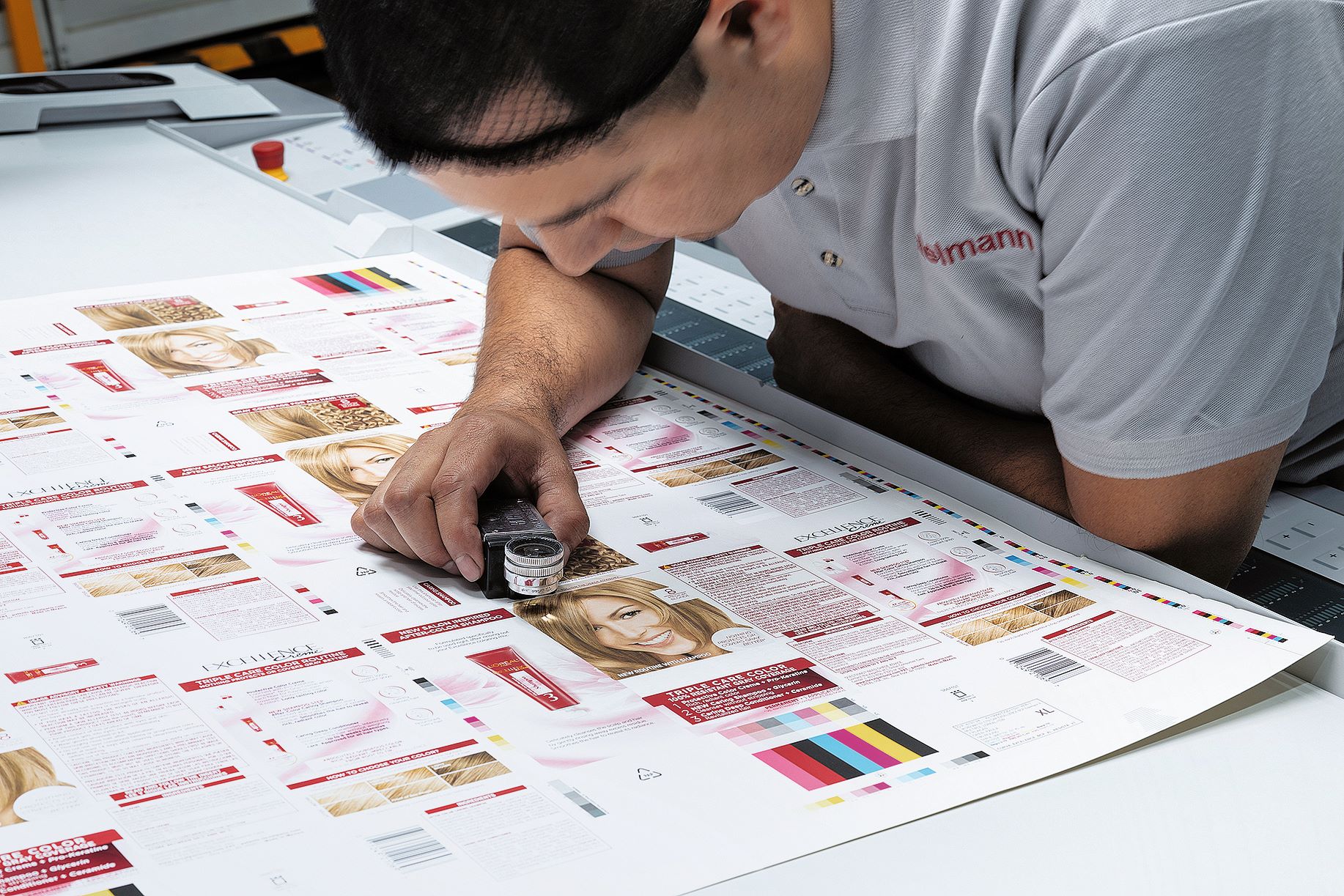

According to Andreas Lang, Senior Vice President Global Accounts at HEIDELBERG, there is something else that links the two partners – important figures who have made a lasting impression on both their company and the industry. The entrepreneur Joachim W. Dziallas, for instance, was General Manager of the Edelmann Group from 1975 to 2002. He passed away in 2021 but is fondly remembered by many industry insiders for his commitment to the FFI, Germany’s Folding Carton Manufacturers’ Association.
Another such figure is Hubert H. A. Sternberg, a board member of Schnellpressenfabrik AG Heidelberg from 1926 to 1972. One way in which Sternberg shaped growth at HEIDELBERG was by using demonstration vehicles to take the Original Heidelberger Tiegel press on the road and show it to printing companies. He is also considered to be a founding father of the world-leading trade show drupa. “Our companies share a similar spirit, which enables us to work together well,” says Lang. “Just like HEIDELBERG, we won’t forget our roots,” adds Hornung.
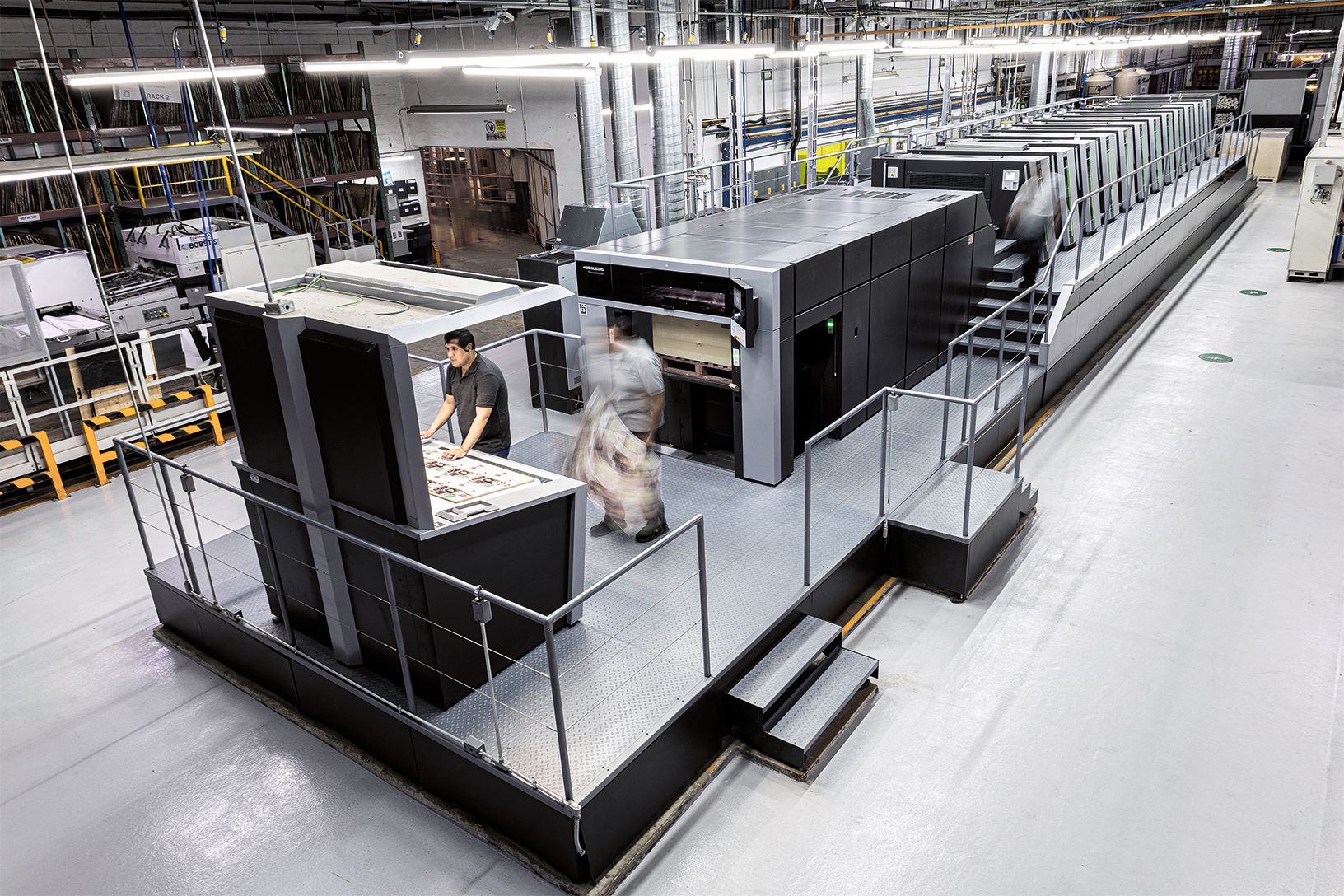
“We don’t tell just anyone about our strategy,” insists Hornung, but he reveals that the group has made HEIDELBERG party to its objectives.
Lang emphasizes the importance of sharing information in this way, explaining that this helps HEIDELBERG work out which machine configurations it should ideally recommend and which ideas it should put forward to support Edelmann.
“Our HEIDELBERG contact tells us what he’s doing and does what he says he will,” adds Hornung, pointing out that transparency builds trust. This is a good basis for mutual, long-lasting, and global success.

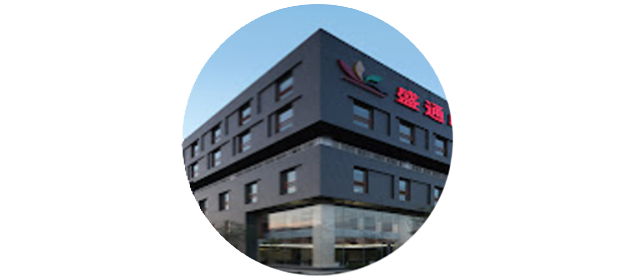

Changing location now, Beijing Shengtong Printing is based in the Chinese capital and became a HEIDELBERG customer comparatively recently. This company primarily produces books and magazines and manufactures packaging for the pharmaceutical and food industries. It first came into contact with HEIDELBERG in 1999, through imported second-hand presses. “Our printing staff initially lacked the basic know-how to operate these imported machines. The operating language alone was an issue,” says CEO Yanqiu Li. At some point or other, Beijing Shengtong Printing got in touch with HEIDELBERG.
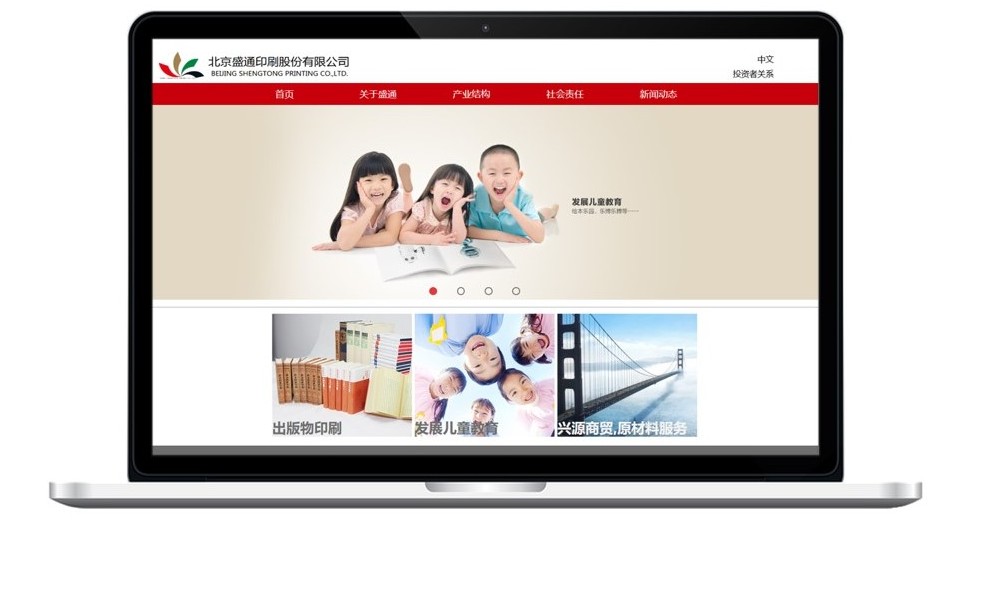

“To our complete surprise, we were given free technical advice,” she continues. That made a real impression. Also impressed by the print quality and efficiency, the Chinese company invested in two new Speedmaster CD 102-4 presses just one year later. Beijing Shengtong Printing now has 30 HEIDELBERG machines. The company recently invested in the packaging segment by acquiring a Speedmaster CX 104-8+L manufactured at the Chinese production site of HEIDELBERG in Shanghai, which it is using to expand its UV packaging printing portfolio.
Beijing Shengtong Printing is delighted to be working with HEIDELBERG because of how well many aspects intermesh – from the short response times of the service team and the fast delivery of spare parts to the good ideas of sales staff. “They suggest products that suit our various growth phases,” explains Li. It is also clear that HEIDELBERG presses evolve with the relevant market. For all these reasons, the two companies have now been working together for a quarter of a century.
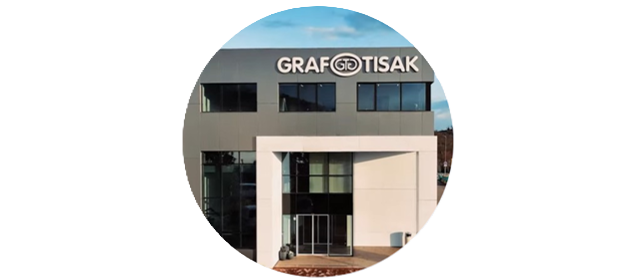

Grafotisak is another satisfied HEIDELBERG customer. Based in Grude, a town in Bosnia and Herzegovina, it prints over 25 million books every year and supplies these to countries such as the USA, the United Kingdom, and Germany. Brothers and General Managers Nikola and Marko Vranješ expanded and modernized their equipment as recently as March 2024, replacing five sheetfed offset presses with six new Speedmaster XL 106 machines. The installation timeframe was just nine weeks for 44 Peak Performance printing units.
The only reason installation could be completed this fast was because each press from HEIDELBERG is calibrated and tested immediately after final assembly at the Wiesloch-Walldorf production plant, before being delivered to the customer. The responsible sales office also contributed, with three assembly teams, each consisting of four engineers, deployed throughout the installation timeframe.
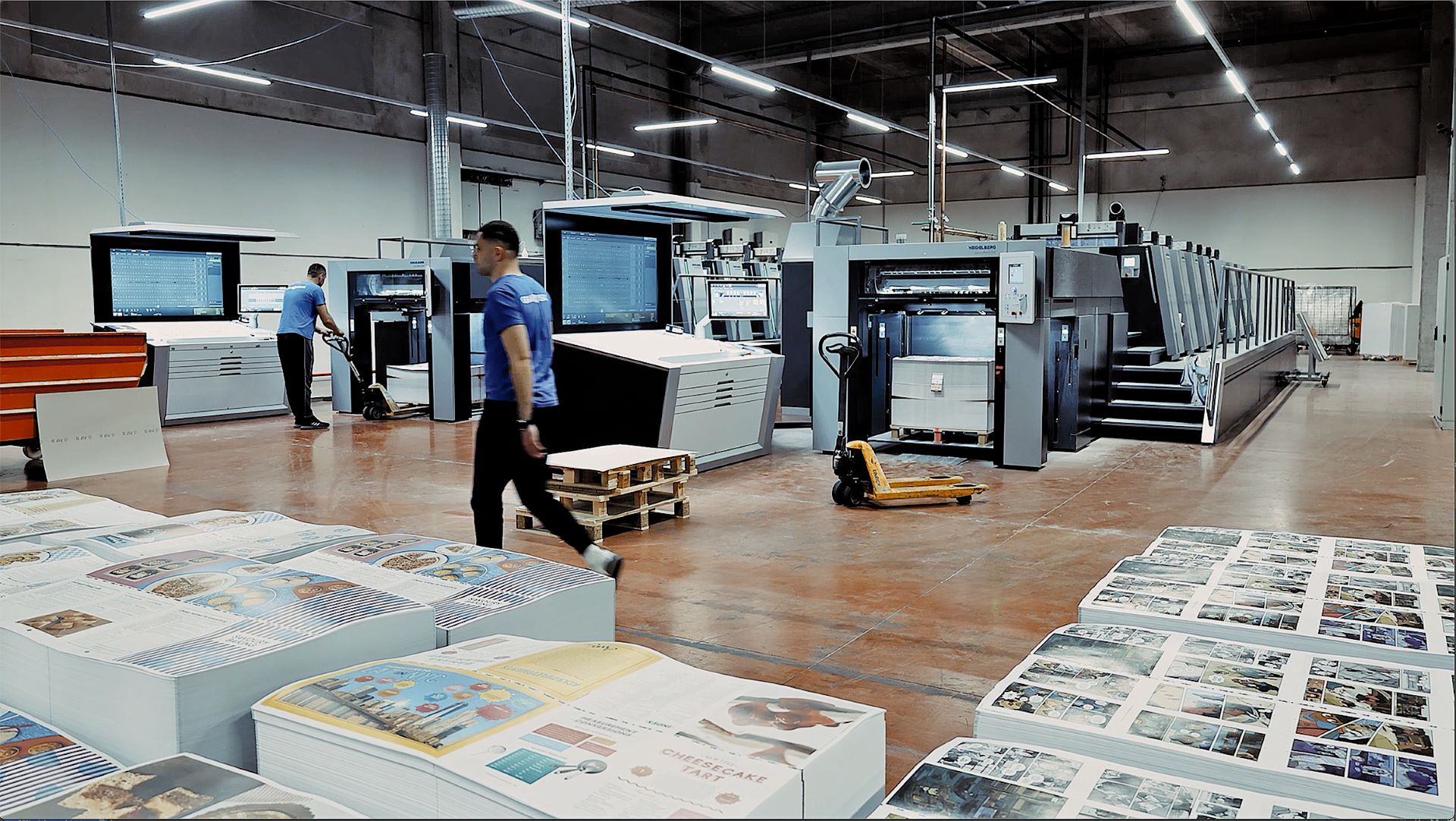
Shrinking print runs, shorter delivery times, and cost pressures are the typical challenges facing Grafotisak. The HEIDELBERG presses play an important role in this context. “Thanks to regular upgrades, we’re boosting our productivity and keeping our production costs down. Push to Stop technology and highly automated processes are helping us achieve this,” explains Marko Vranješ. A further challenge that has emerged over the years is the fact that publishing houses expect production to be as sustainable as possible. “We’re continuously having to pass audits and provide evidence of our efforts to become carbon neutral,” says Nikola Vranješ. In this case, too, HEIDELBERG offers various features that print shops can use to impress their customers.
